Readers are advised this article contains images that are distressing.
Farmers in North East Victoria are becoming increasingly worried that the removal of a livestock protection buffer against wild dogs will lead to a jump in livestock losses.
They have been concerned by both livestock deaths and the killing of native animals.
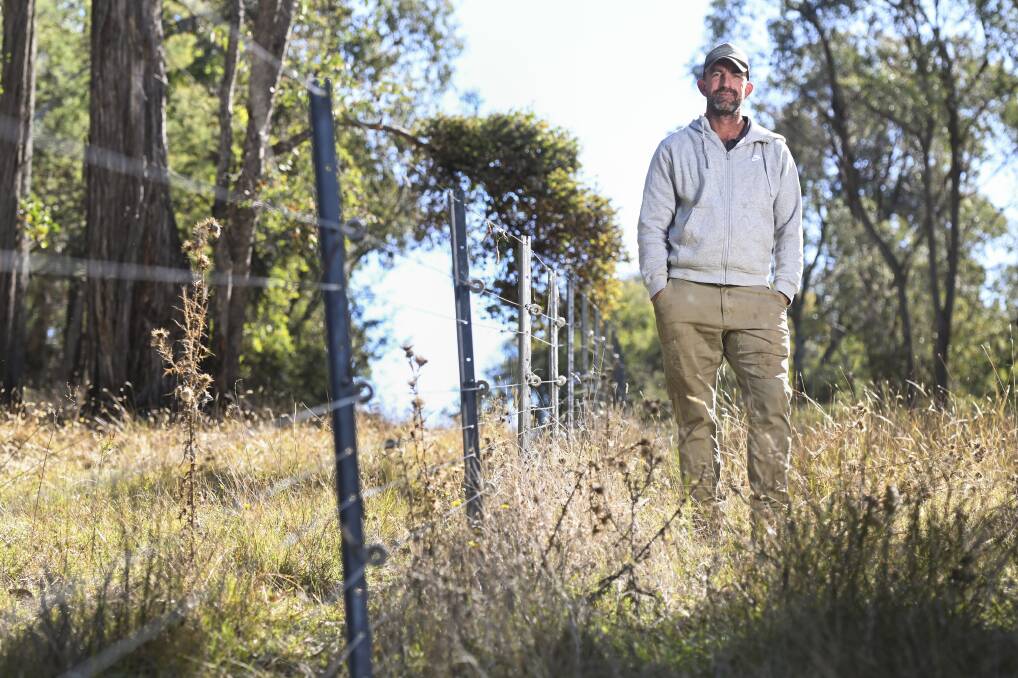
But the fear is the protection buffet, in place for decades, is about to end with drastic consequences, especially in the Upper Murray.
In September, the Victorian agriculture and environment ministers signed a 12-month extension but "have failed to carry out some of their promises".
The existing program will expire on October 1, 2024, with no guarantee of renewal.
Tallangatta Valley's Emma Nankervis said there had been promises of "substantial and informed consultation" as well as further research, including counting wild dogs and dingoes.
But in six months there had been no consultation with the North East Wild Dog Action Group.
'Will we get to keep the program?'
"North-west Victoria no longer has a wild dog management program as it was ceased without notice on March 14," she said.
"Wild dogs are now fully protected on both private and public lands and we're afraid that is going to happen here."
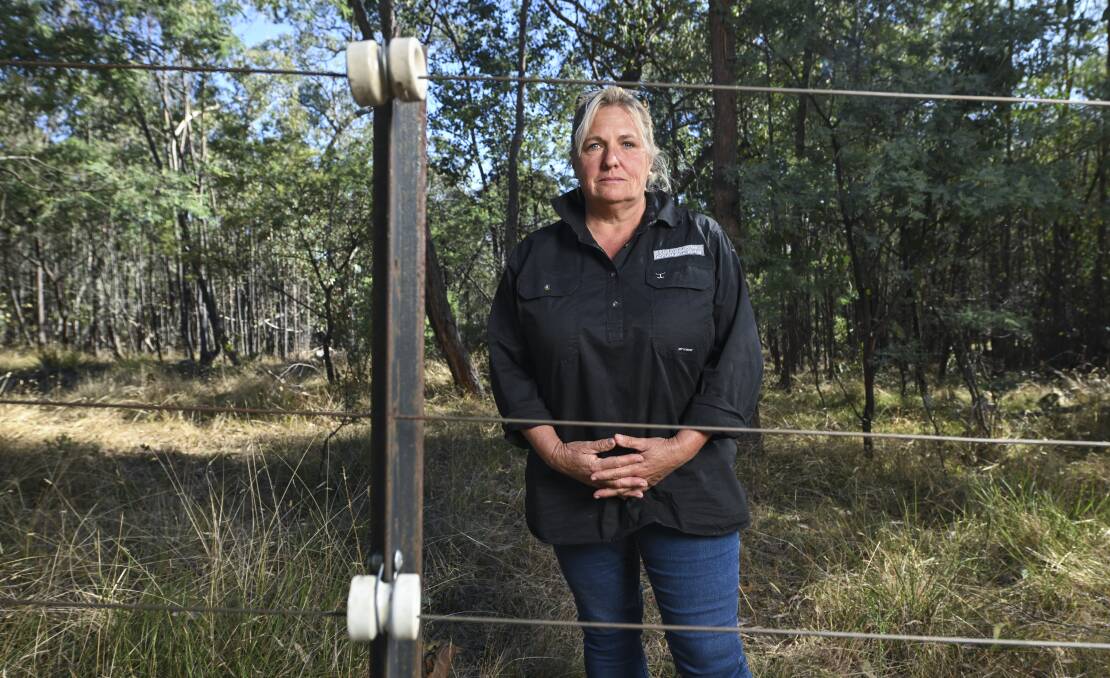
Mrs Nankervis said the wild dog population had been growing in her area over recent years and the removal of the protection buffer would create a dire situation.
"It would be absolutely devastating for our farms," she said.
"The impact to sheep will be immediate once everyone gets rid of their sheep because it'll be unmanageable and unviable to have them and purely cruel to have them.
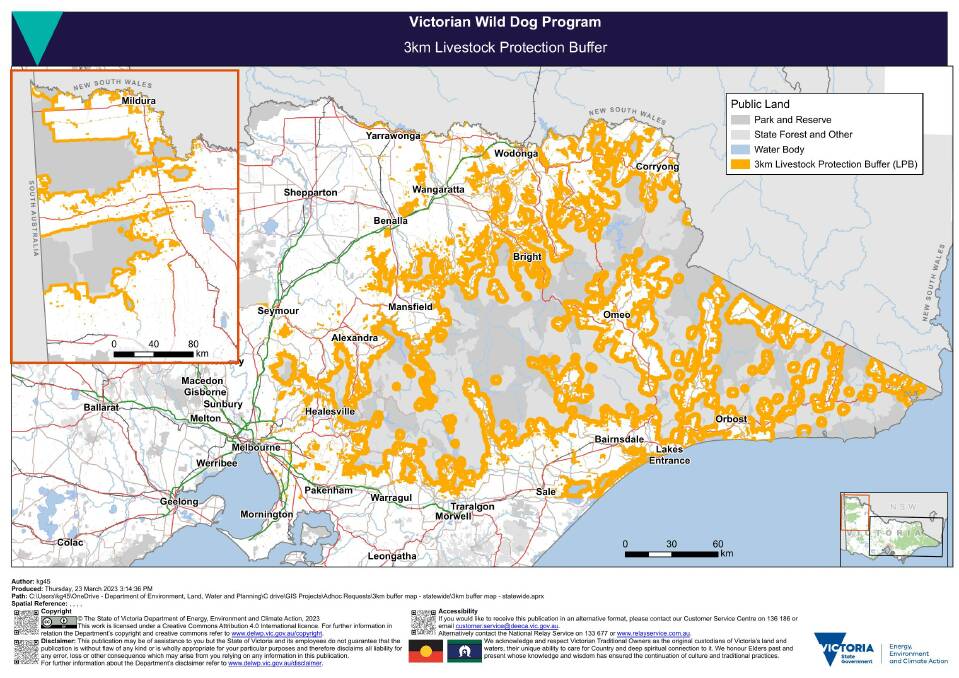
"If you can't protect your stock, you shouldn't really have them.
"The roll-on from that is the impact to calves and cows will go up drastically because the dogs will be breeding.
"They'll be getting bigger, stronger, hungrier. Eventually, it will be humans.
"My feeling would be in four years with no program, we wouldn't be standing here without being armed."
Mrs Nankervis said there was no upside to wild dogs, given they weren't doing anything useful.
'Wild dogs or dingoes?'
The program was also under threat, she said, from dingo conservation groups making claims about the species of the dogs.
"Even if you want to say that dingoes are a native animal, which I truly don't believe, these are not dingoes. They're wild dogs, feral dogs," she said.
Mrs Nankervis said the action group had written to past and present Victorian ministers of both agriculture and environment on multiple occasions since July, 2023, along with an assortment of other ministers they felt might be able to help.
But often all it got was a "generic response".
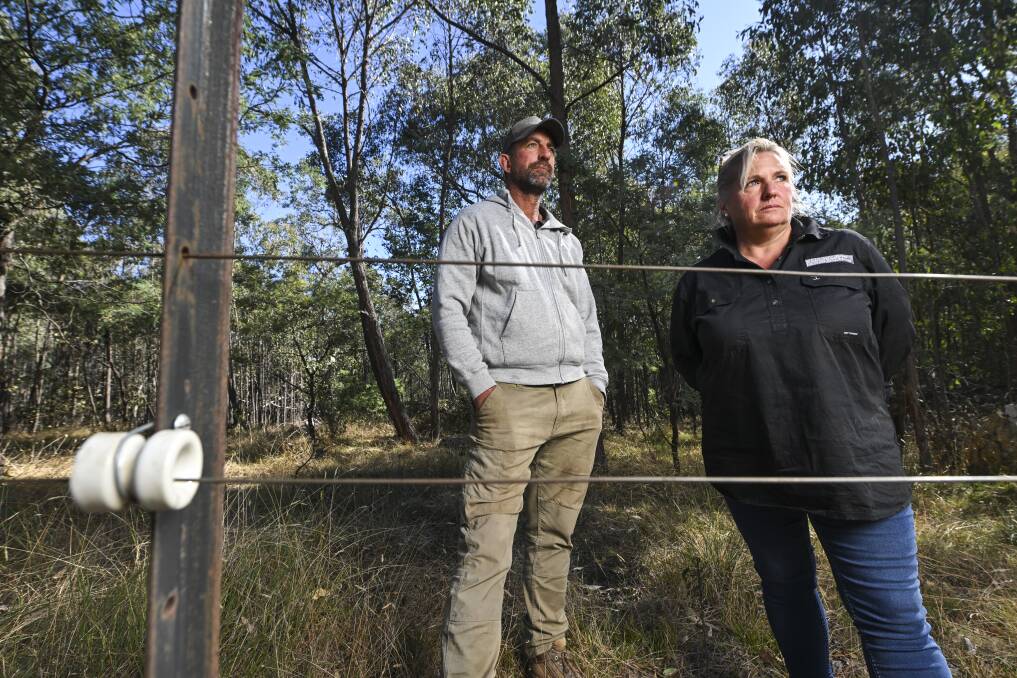
Agriculture Minister Ros Spence had offered to visit the area on February 28, but this was cancelled at the last minute.
Since then, there had been no further communication from the minister's office.
Mrs Nankervis said farmers were at a loss as to what to do and were scared to see what the future would bring.
"As much as we try to get more information out there about it, we're shut down," she said.
Tallangatta farmer Clinton Reid said he had spent many sleepless nights in paddocks protecting his stock.
He said like many neighbouring farms he had invested in electric fencing, but many farmers were not so fortunate.
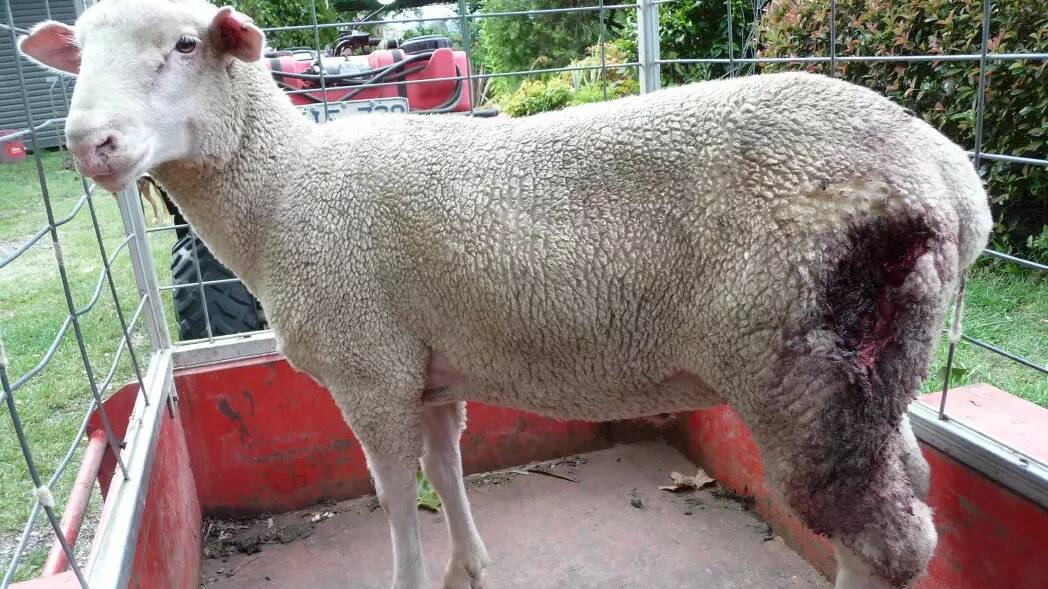
"If a dog gets in your place and starts killing they'll keep doing it until you take that dog out," he said.
Mr Reid said he was the fifth generation on his farm and "we've all dealt with wild dogs, more so my grandfather and father".
'It will be a slaughterhouse'
"We've always said that if someone's breaking into someone's house in town and stealing $100 every second night, you would do something about it," he said.
"You're going to have someone in town tell us that we're getting the same situation. Someone's coming in, taking $100 every night but we're not allowed to touch them?
"I just don't see how that's fair. It's unviable.
"All we want is the right to be able to protect our livestock properly and maintain a working business.
"Without the buffer zones and the fences, we've got no hope."
Mr Reid said it would "become a slaughterhouse" without the buffer zone in place.
'Taking a toll on our mental health'
"Common sense must prevail," he said. "The program needs to be upheld.
"We want the Wild Dog Management Program kept as it is. That is the key to it.
"Most farmers just want the program as it is; they don't want extra, they don't want less, they don't want more.
"Every little piece works well together. Dog fences are great, we need to have them and we need it to keep those problem dogs under control."
Mr Reid said he had caught 34 dogs on his property in the past 18 months and he was sure there would be hundreds and hundreds more.
He said wild dogs took a financial and emotional toll on farmers.
That was especially because the dogs weren't just killing the stock out of hunger; they were "disembowelling them, leaving them to suffer for days before they died" and were also bringing in diseases.
"The dogs in these areas are a genuine threat to people's livelihood, and they need to be maintained."


